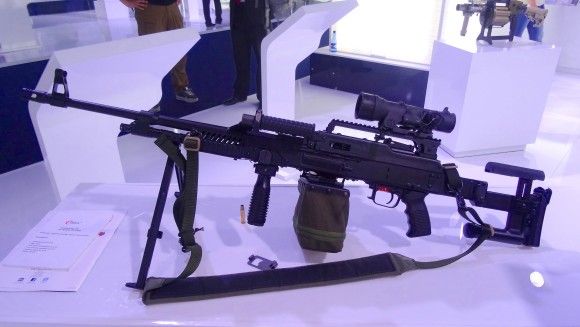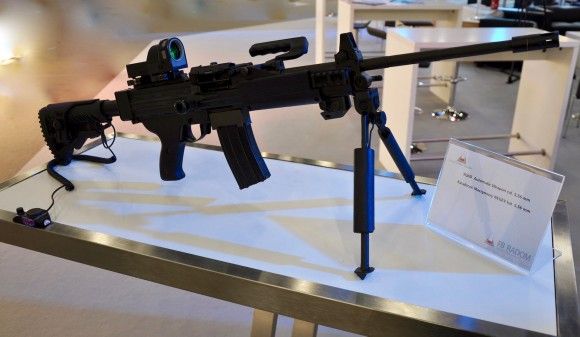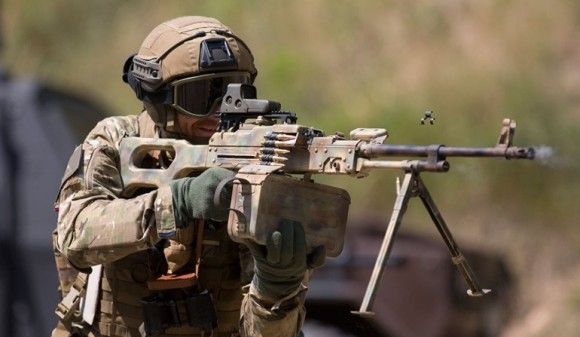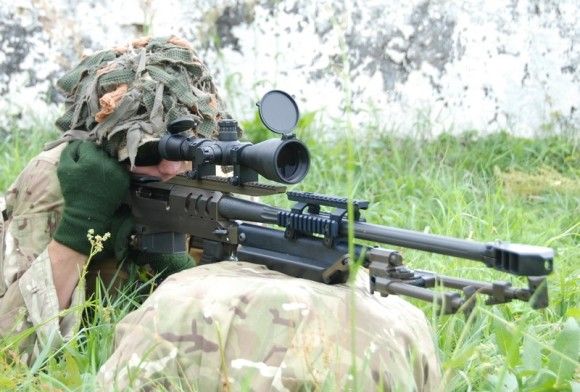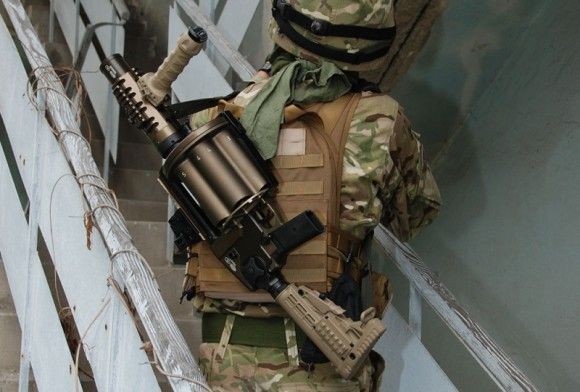Industry
New Versions of the Rosomak APC. Specialized Derivatives and Modernization Options
Rosomak S.A. company, which is a part of the Polish Armaments Group (PGZ – Polska Grupa Zbrojeniowa) has developed a number of specialized variants of the Rosomak APC. The Armed Forces are willing to, in the upcoming period, introduce reconnaissance and armoured recovery variants of the vehicle into the inventory. There also plans in existence, the aim of which would be to integrate the Rosomak platform with the Spike ATGM.
Rosomak-WRT (literally: Technical Reconnaissance Vehicle; ARV variant) has already been ordered by the Polish Ministry of Defence, in a number of 34 examples. This platform is the first ever vehicle within the inventory of the Polish Army, fitted with the remote controlled armament module: ZSMU-1276A. The turret comes with the 7.62 mm UKM-2000C machine gun installed, and it has been delivered by the ZM Tarnów facility. The vehicle was being showcased during the MSPO 2016 show in Kielce.
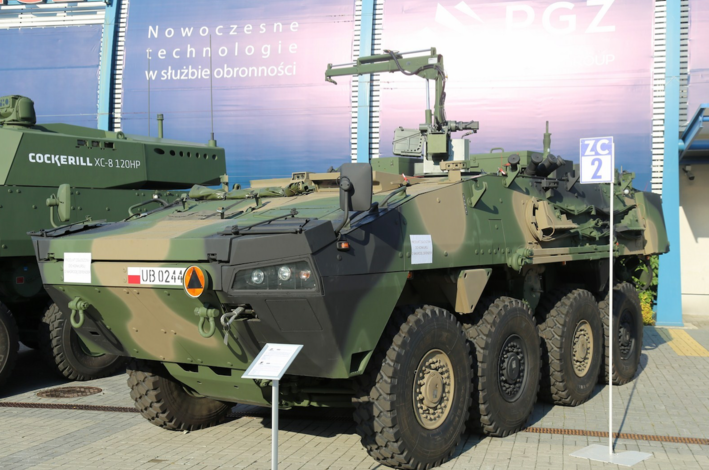
The crew of this vehicle consists of a driver, commander, two mechanics and, depending on the requirements and assigned tasks – a medic. In order to provide the basic technical assistance within the battlefield to the damaged or neutralized vehicles, the ARV variant has been fitted with a HIAB crane, with load capacity of 1000 kilograms, rescue air cushions, equipment for electrical and gas welding, dryers, repair tent and a toolkit and a variety of diagnostics/specialized tool kits.
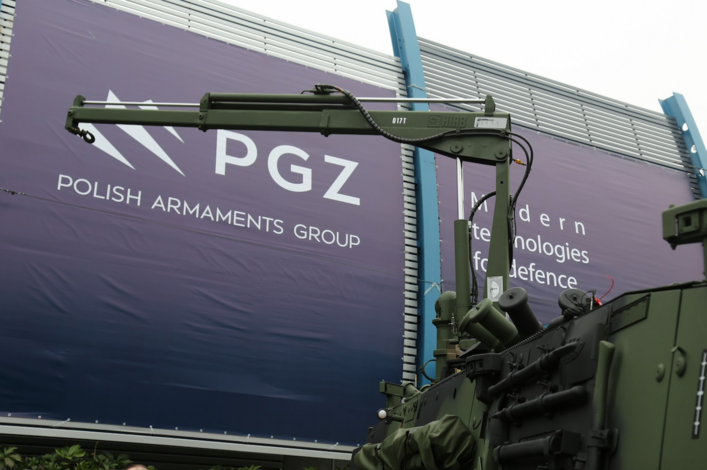
The task given to such vehicles, manufactured by the Rosomak S.A company which is a part of the PGZ, is to provide basic assistance to the damaged platforms, through execution of the basic repairs, including replacement of tyres, welding of the damaged components of the chassis or diagnostics, related to the onboard electronics. During the MSPO two reconnaissance variants of the Rosomak vehicle have also been showcased.
The first vehicle is the R-1 command-reconnaissance platform (WDR), while the R-2 variant is a general purpose reconnaissance vehicle. Both platforms are expected to have ISTAR (Information, Surveillance, Target Acquisition and Reconnaissance) compliant set of capabilities.
At the moment, it is said that 50 vehicles of both types are to be procured, with 27 coming in the R-1 and 61 in the R-2 version. The armament of both varieties remains unchanged, as compared with the standard vehicle – it comes in a form of 30 mm Mk 44 cannon, along with a coupled machine gun. The basic reconnaissance equipment of both APCs which are being developed by the Rosomak S.A company, within the scope of works carried out by PGZ, include the Janus RSTA optronics suite, integrated with the vehicular fire control system, along with the Ferret acoustic shot and shooter detection system (to be replaced by Pilar Mk2). The carriers also received a package of daytime and night vision cameras, providing a 360 degrees field of view.
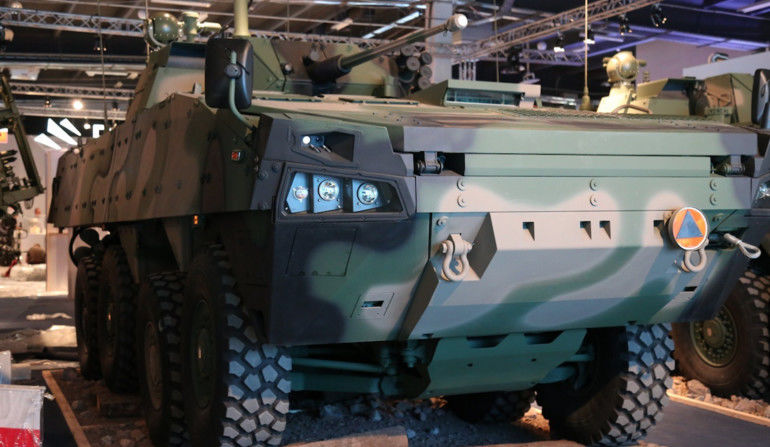
The R-1 version presented in Kielce is amphibious. Its maximum permissible mass is defined as 23.3 tonnes. Maintaining the amphibious capabilities of the vehicle, with a higher mass, as compared to the standard combat variant, was possible thanks to the fact that solutions included in the Rosomak-M demonstrator were also implemented in case of the R-1 variant. The vehicle crew consists of 5 persons, including commander, driver, gunner and two recon-observers. The platform features three consoles of the automated reconnaissance system for the commander and for the observers, who may also carry out relevant operations outside the vehicle.
The R-1 platform has an expanded communications system at its disposal, with additional VHF and HF, as well as broadband radios, along with a communication suite allowing the crew to exchange the information with the airborne platforms. The basic element which differentiates the R-1 version from the R-2 derivative is the compartment with an extending mast which has been fitted with a tactical battlefield reconnaissance radar and an optronic sensor which allows the crew to observe the terrain within a radius of 20 kilometres.
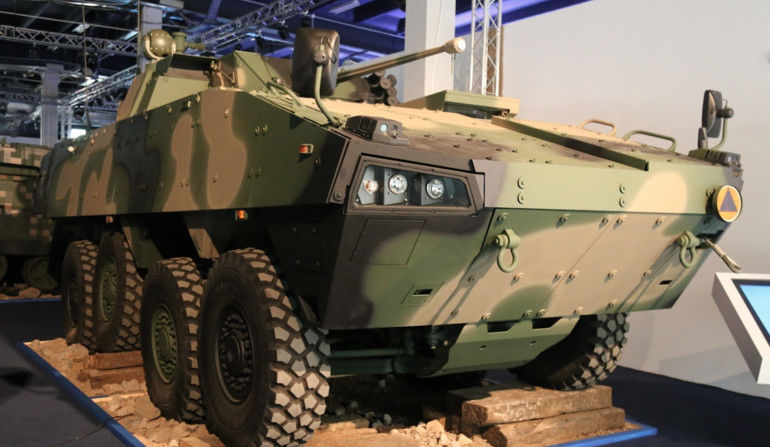
The R-2 vehicle, without the mast compartment, has been fitted with portable reconnaissance equipment, including a directional microphone and reconnaissance officer’s terminal. It also features an APU, similarly as the R-1 version.
According to the information released during the MSPO 2016 event by Col. Krzysztof Zielski working at the General Staff, the Polish Army is willing to start a tender concerning modernization of the Rosomak vehicles fitted with the Hitfist-30P turrets. These carriers are expected to be additionally armed with the Spike-LR ATGMs. Last year, a modernization demonstrator has been premiered. The platform was also featuring a Spike ATGM launcher.
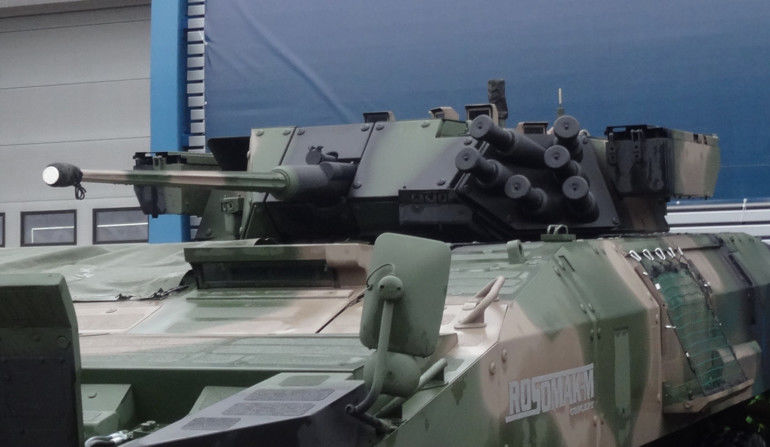
The Rosomak-M vehicle also retains its amphibious capabilities with a mass of more than 23.5 tonnes, which allows the platform to meet the amphibious capacity requirement, despite the fact that additional equipment has been fitted onboard. The carrier has been, in line with the requirements of the Polish Army, fitted with two Spike-LR ATGM launchers. It is worth to mention the fact that integration of the aforesaid missiles has already been planned when the Rosomak APC was being procured, however, for a variety of reasons, we have not seen implementation of these plans so far.
Rosomak also received a new protection module/plate, with special foam filling, at the front bottom part of the hull. Optionally, foam filling may also be applied between the main and additional armour. The maximum permissible mass of the vehicle is 26 tonnes.
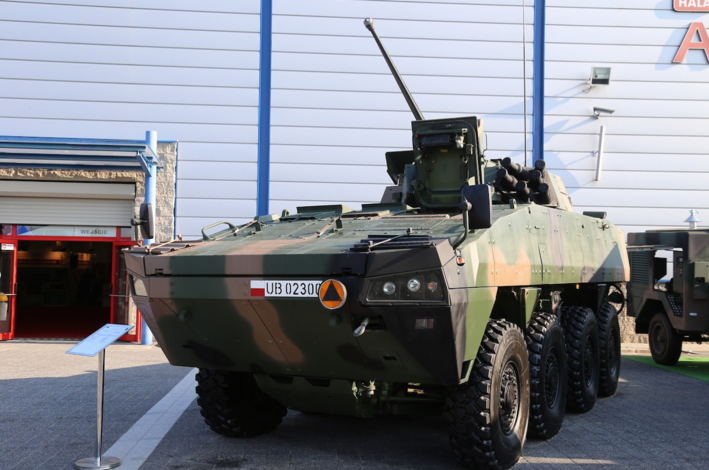
Within the framework of a separate tender, elements of the BMS battle management system are to be fitted onto the carriers, alongside the Spike-LR launchers. It cannot be excluded that in a longer run the situational awareness of the Rosomak platform is going to be further expanded, for example through implementation of systems which would provide the vehicle with a “hunter-killer” capability.
Rosomak-M demonstrator, presented back in 2015, also featured additional armour solutions developed by the IBD Deisenroth Engineering company, with the use of the Nano-Crystaline technology. Fitting the vehicle with additional panels insignificantly widens its body – 5 centimetres at each side. The modified shape of the thrusters also limits the resistance levels in the water.
The carrier showcased during the last year’s edition of the Salon, constituting a proposal of the industry related to a prospective modernization of the platforms used by the Polish Army, featured a number of other enhancements, including changes of the A/C system or option of installing nets which could be used for carrying extra equipment. Also, the vehicle features IED or mine explosion protection system embedded within the crew seats.
Protection is enhanced even further by using the armour provided by the Huta Stali Jakościowych. Four ARMSTAL armoured sheets are offered (varying in hardness), which may be used for creating the vehicle bodies and armoured panels.
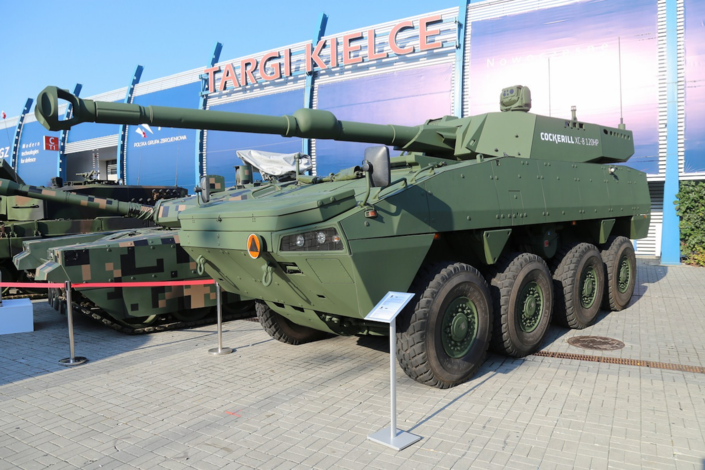
Wilk fire support vehicle demonstrator has been presented during the MSPO Defence Insustry Exhibition. The vehicle is based on the Rosomak IFV, and it is fitted with a concept Cockerill XC-8 turret, armed with a smooth-bore 120 mm cannon. The cannon is compatible with the standard NATO 120 mm tank rounds, compliant with the STANAG 4385 norm.
The turret in question has been fitted with a modern, advanced and modular fire control system, allowing the vehicle to operate as a “hunter-killer” platform, stabilizer and automated ammunition feed. There is also an option of adapting the cannon for using programmable or guided anti tank ammunition. The cannon features a barrel, the length of which is 50 calibres. It is capable of operating within the elevation range between -10 and +20 degrees.

